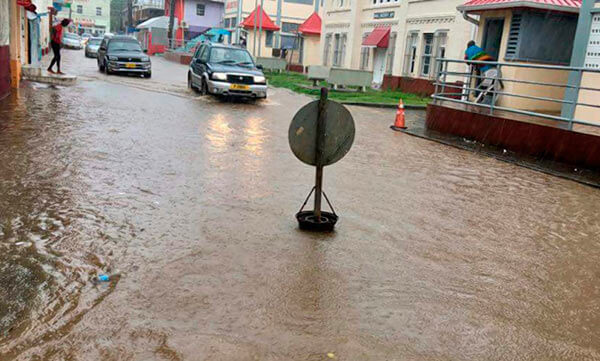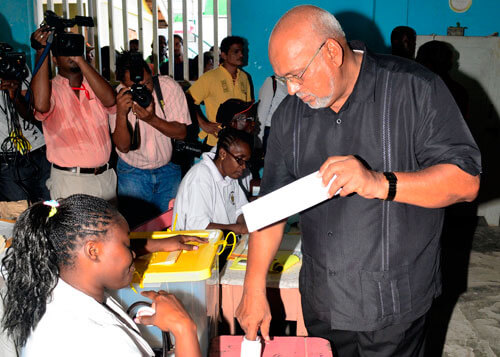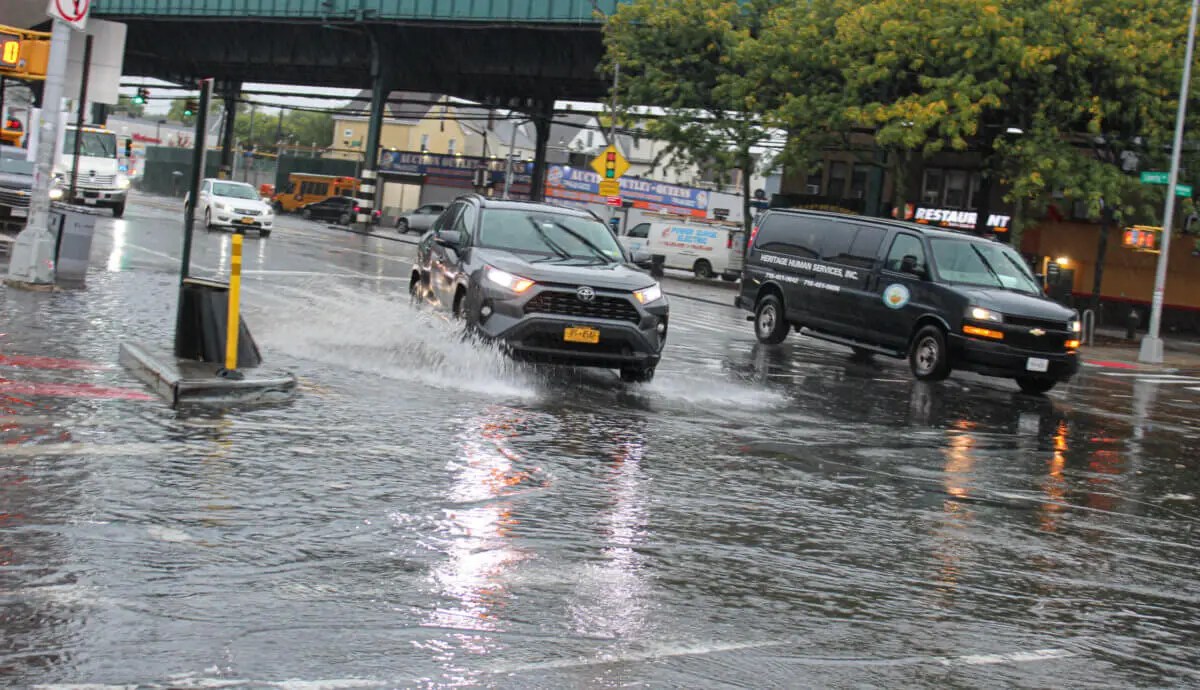Grenada and its smaller family islands as well as the Dutch dependencies of Aruba, Bonaire and Curacao were spared the wrath of Tropical Storm Bret as it roared through the Caribbean and northern South American countries this week, dumping tons of rain, snarling traffic, cancelling commercial flights and closing government and private sector offices in one of the earliest storms of an annual hurricane season in recent memory.
But Trinidad which had always been in the pathway of this early fact of nature, was not so lucky as Bret ripped off the roofs of nearly 100 homes mostly in south, central and east Trinidad, felled trees and utility poles, damaged and blacked out the electricity grid and left homes under water. No serious injuries were reported. One man died after falling off a makeshift bridge, hitting his head in the process.
“Thank God,” said a clearly relieved Prime Minister Keith Rowley who is already trying to steer the oil and gas-rich twin island republic with Tobago back to economic prosperity after years of poor governance decisions and shocks from relatively low oil and gas prices.
“This was a serious storm but everything was in place and I just want to thank everybody who did everything that they were supposed to do. But, most important, Thank God,” the Trinidad Express quoted Energy Minister Rohan Sinanan as saying as it weakened as it headed to the Dutch Caribbean as a severely weakened depression that came much too early.
The annual hurricane season usually starts on June, 1 and runs until the end of November. The region braces for strong storms mostly around and after August.
Nearby Barbados which was also on storm alert hardly batted an eyelid as locals tracked the path of the storm as it veered away from the region’s most easterly island. Down south in Guyana and Suriname rain pounded those countries on Monday causing isolated flooding in parts of the interior and a bit on the coast. This is even as both countries are in the midst of its annual mid year rainy season.
But Trinidad which like fellow Caribbean Community nations Guyana and Suriname that are thought to be out of the normal path of hurricanes, was by mid week cleaning up, having been reminded that climate and weather patterns might be changing.
The Caroni, Guaracara, Godineau and Cipero rivers all overflowed their banks, causing flooding. Furniture and other household items floated down streets in some areas but officials said small monetary grants will be available to help people recover and settle down.
While taking to social media to discuss being stranded, airline passengers accepted the fact that major regional carriers like LIAT and Caribbean Airlines were forced to cancel nearly 60 flights but quickly mobilized to resume once the worst of the storm had passed and clearances given by air traffic controllers.
Bret was the earliest named storm spotted so far east. At its worst, wind gusts had reached 50 miles per hour. The US National Weather Service deemed Bret an oddball because it had formed much farther south in the Atlantic than usual.
Weather experts also say that the region must be prepared for the unusual as they hark back to another extreme. In November 1999 Hurricane Lenny, moving from west to east rather than the other way around, pounded Dutch St. Maarten as the season rolled to an end as warm Atlantic waters which feed hurricanes were cooling.
Fears of a tough hurricane season are borne out by the fact that open seas near the US are already warm and several states are under severe heat storms, making conditions ripe for any storm to pick warm water and gain strength in open waters.


























